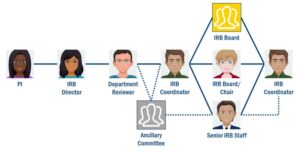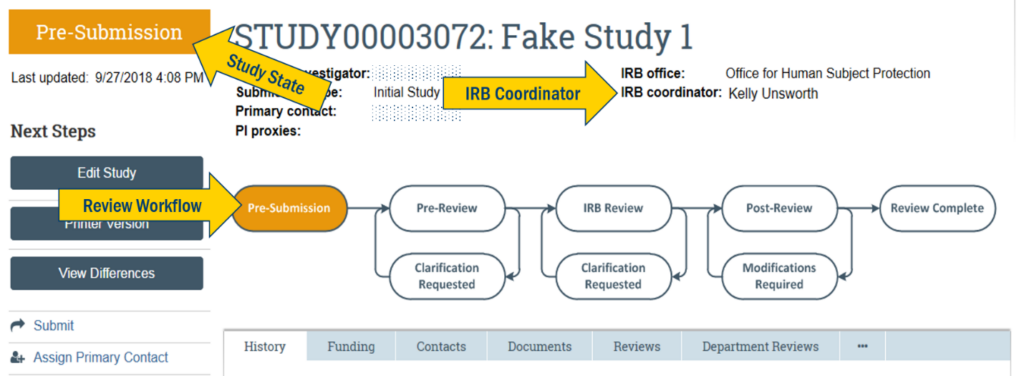Exempt research involves very little risk and must fall into one or more federally-defined exemption categories.
The term ‘exempt’ does not mean that the research does not require IRB review. Rather, once it’s determined that the research falls into one of the exemption categories, it is exempt from further IRB reporting requirements provided there aren’t any revisions to the research.
Per institutional policy, the Research Subjects Review Board (RSRB) is responsible for making the determination of whether or not the research falls into one of the exemption categories; Investigators are not permitted to make this determination independently. For additional information reference our RSRB (IRB) Exemptions page.
Expedited research involves no more than minimal risk (meaning, the probability and magnitude of harm or discomfort anticipated in the proposed research are not greater, in and other themselves, than those ordinarily encountered in daily life or during the performance of routine physical or psychology examinations or tests) and must fall into one or more federally-defined expedited categories.
Whether a proposal’s review level is ‘exempt’ or ‘expedited’ affects the IRB review process. While both submissions are initially reviewed by an IRB coordinator, exempt submissions are confirmed by a secondary RSRB staff member (typically either a senior IRB coordinator or a director). Whereas expedited proposals, must be reviewed and approved by a board chair or the designated board member (i.e., the vice chair or another experienced board member). Based on this requirement, the term ‘expedited’ is not meant to reflect turnaround time; the term only reflects that the process does not require review by the convened board, which may only meet monthly or bi-monthly, depending on the board.
From the standpoint of the study team, whether the research falls into an exemption category or undergoes expedited review has very little effect on their IRB reporting requirements. In either case, following exempt confirmation or IRB approval, the study team is responsible for:
- submitting any revisions (modifications) to the research for review and confirmation of continued exemption (exempt) or IRB approval (expedited) prior to implementation; and
- reporting research events in accordance with OHSP Policy 801: Reporting Research Events.
The primary difference is the requirement for continuing review (i.e., submission of a progress report), which the IRB may require for expedited research. Circumstances where the IRB may require continuing review include (but are not limited to):
- research involving vulnerable populations;
- research conducted by Investigators with prior incidence of non-compliance; and
- research involving the collection of sensitive information.
When continuing review is required, the research will be assigned an expiration date (per federal regulations, this date cannot exceed a one-year approval period).


